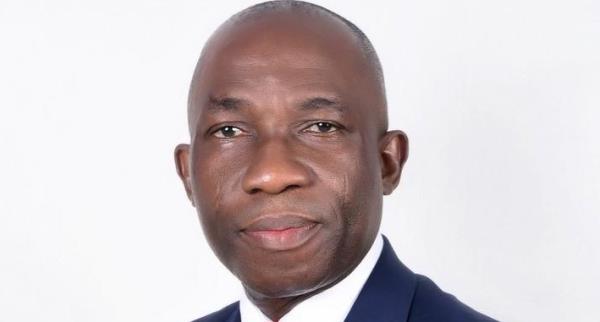Broadcasting
Nigeria Commits to Domestication of Beijing Treaty on Audiovisual

Nigeria, in the ongoing reform of its copyright system, is taking steps towards the domestication of the provisions of the Beijing Treaty on Audiovisual Performances, which came into force on 28th April 2020.

Mr. John O. Asein, Director-General of Nigerian Copyright Commission (NCC), disclosed this in his opening remarks at a Webinar with the theme: Strengthening Nigeria’s Creative Sector through Improved Rights for Artists and Performers, to mark the coming into force of the treaty.
Expressing concern over the loss of revenue in the audiovisual industry, he assured that the Commission would work with the guilds, associations and collective management organisation in the industry to develop appropriate mechanisms to ensure greater return on creative investment.
He noted that such interventions would necessitate looking into various aspects of the industry, including engagement contracts, distribution bottlenecks, online abuses and rights management issues.
The Director-General reaffirmed the Commission’s commitment to improving the protection available to audiovisual performers, especially “in today’s digital environment where copyright works are easily retransmitted on various online platforms often without recourse to the right owners or the performers.”
Noting that Nigeria’s film industry ranked among the top three in the world, he expressed worry that the ranking has not translated to real economic benefit and enhanced status for the performers “who stand before the lights and cameras transforming scripts to action”.
Mr. Asein expressed sadness that in recent times, well-known film and television actors faced with health challenges have had to appeal to the public for assistance which often came in trickles or a little too late.
“The current global pandemic has further amplified the vulnerability of creators – authors, musicians, actors and other performers – and it underscores the need to have a fallback system to sustain them beyond their active years and especially in time of economic downturn. These are people who generate or bring life to the copyright works that we enjoy but in most cases they do not have access to any form of pension or gratuity”, he stated.
The Director-General who congratulated member states of WIPO despite the fact that the Treaty was coming into force about eight years after its conclusion in June 2012, urged participants at the Webinar to provide “initial thoughts on how the balanced application of the provisions of the Treaty could help Nigeria achieve its laudable objectives.”
The Beijing Treaty on Audiovisual Performances was adopted by the Diplomatic Conference on the Protection of Audiovisual Performances, which took place in Beijing from June 20 to 26, 2012.
The Treaty modernises and updates for the digital era the protection for singers, musicians, dancers and actors in audiovisual performances. It upgrades the Rome Convention for the Protection of Performers, Producers of Phonograms and Broadcasting Organizations (1961) and complements the WIPO Performances and Phonograms Treaty (WPPT), which updated protection for performers and producers of phonograms.
The Beijing Treaty encompasses the performances of actors in different media, such as film and television, and also includes musicians when their musical performances are recorded in a DVD or any other audiovisual platform. It grants performers economic rights in fixed and unfixed performances, as well as certain moral rights.
Under the Beijing Treaty, performers are accorded four kinds of economic rights for their performances fixed in audiovisual fixations, namely the right of reproduction; the right of distribution; the right of rental; and the right of making available.
The Treaty obliges each contracting party to adopt, in accordance with its legal system, the measures necessary to ensure the application of the Treaty, including ensuring that enforcement procedures are available for effective action against any act of infringement of rights.
Broadcasting
NCC, MCSN Collaborate on Copyright Enlightenment

The Nigerian Copyright Commission (NCC) in collaboration with Musical CopyrightSociety of Nigeria (MCSN) organised a stakeholders’ engagement and awareness event in Kaduna on November 20, 2024.

The event, themed “Enjoy Music, Respect Copyright, Protect your Business,” according to the State Coordinator, NCC Kaduna office Mrs Rukayya Yeldu was aimed at educating music users about copyright laws and the importance of paying royalties to support musicians in the creative industry.
Mrs. Yeldu in her address at the event noted that copyright laws help protect the livelihood of musicians and other stakeholders while emphasising that paying royalties is both a legal and moral duty for business operators in the creative sector.
Director-General, MCSN Mr. Mayowa Ayilaran in his presentation spoke about MCSN’s role in the creative sector and encouraged business owners to obtain proper licences for the music they use.
Broadcasting
90% of Global Constituents Support AI Agents in Public Service, Salesforce Finds

Public trust in government has been lagging for years but new Salesforce research reveals AI agents could help rebuild it.

Constituents around the world agree there’s room for improvement when it comes to government service. Forty percent struggle with government interactions, and over a third are unsure of available programs. However, the research indicates overwhelming public support for AI solutions — with 90% of global constituents saying they’d use an AI agent to engage with their government.
The arrival of AI agents presents governments with an exciting opportunity to strengthen public trust by streamlining services and speeding up response times. And in the face of tightening budgets, agents can augment public servants and better serve their constituents — without having to add headcount.
“It is clear from our research that there is a need for AI solutions like Salesforce’s Agentforce that help governments streamline and scale services to better meet the needs of their constituents,” said Nasi Jazayeri, EVP and GM of Public Sector at Salesforce.
“As global leaders gather in Davos, we have a tremendous opportunity for the public and private sectors to come together and explore how major advancements in technology like AI agents can improve how governments support citizens.”
Public calls for improved government service
40% say it’s difficult to interact with the government when they have questions or need help.
Less than half of survey respondents find it easy to understand what public services (42%) and public assistance programs (46%) are available to them.
Top service delivery improvements desired by global constituents include:
Reducing the number of steps to address needs
Responding to their needs faster
Constituents eager to engage with agents
90% of global respondents said they’d use an AI agent to interact with the public sector.
Constituents in Brazil, Spain, Singapore, and Italy are among the most willing to use AI agents to interact with the public sector, providing these countries with the opportunity to be trailblazers in the agentic AI era.
20% of German and American respondents say they’re very likely to use an AI agent to help fill out government forms (e.g. filing taxes, completing applications).
Three factors global respondents said they prioritised when considering using AI agents in the public sector:
24/7 access to information and services (47%)
Helping them efficiently access government resources (44%)
Reducing the number of websites and steps needed to address their needs (40%)
Broadcasting
NCC, NBTE to formulate IP Policy for Polytechnics, Technical Institutions

The National Board for Technical Education (NBTE) has expressed its commitment to partner with the Nigerian Copyright Commission (NCC) for the creation of a robust Intellectual Property (IP) Policy tailored for Polytechnics and Technical Institutions across Nigeria.

This collaboration was agreed upon during a courtesy visit by the Director-General, NCC, Dr. John O. Asein to the Executive Secretary NBTE, Prof. Idris Muhammad Bugaje, in Abuja. The visit aimed to enlighten NBTE on the mandate of Commission and areas of possible collaboration.
Dr. Asein, represented at the meeting by Director Nigerian Copyright Academy (NCA), Mrs. Funmi Adewale and Director Planning Research and Statistics (PRS), Mr. Collins Nweke, emphasised the importance of a functional IP Policy and the need to incorporate Copyright Education into the curriculum of Technical Institutions.
The ES-NBTE who was represented by the Director, Abuja Liaison Office, Dr. Yahaya Bande gave assurances that the proposed partnership will yield results and lauded NCC’s initiatives of raising public awareness about IP and Copyright, emphasising that such efforts are crucial for enhancing the nation’s economic development.
The Commission’s representatives presented copies of the Commission’s publication “What Is Copyright” and “Copyright Act 2022” to the Executive Secretary, NBTE.

 E-Financial2 days ago
E-Financial2 days agoMoniepoint MFB Says Rumours of N1.1Bn Theft by Hackers Malicious

 General News2 days ago
General News2 days agoCourt Orders Arrest of Access Bank Acting MD, Others over Alleged Theft of Property

 Telecom2 days ago
Telecom2 days agoSERAP Drags Tinubu, Others to Court over ”Arbitrary” Telecom Tariff Hike

 E-Financial2 days ago
E-Financial2 days agoWorld Bank Urges CBN to Sustain Inflation Control Measures

 Telecom2 days ago
Telecom2 days agoFG, WIOCC Partner to Deliver Internet to 3m Homes with $10m Investment

 E-Financial2 days ago
E-Financial2 days agoZenith Bank Reinforces Commitment to Staff Wellbeing with Salary Hike and Promotions

 E-Financial2 days ago
E-Financial2 days agoSEC Warns against Transactions with Risevest, Stecs Cooperative Societies

 Telecom1 day ago
Telecom1 day agoGalaxy Backbone Celebrates Excellence and Innovation in Its People


























